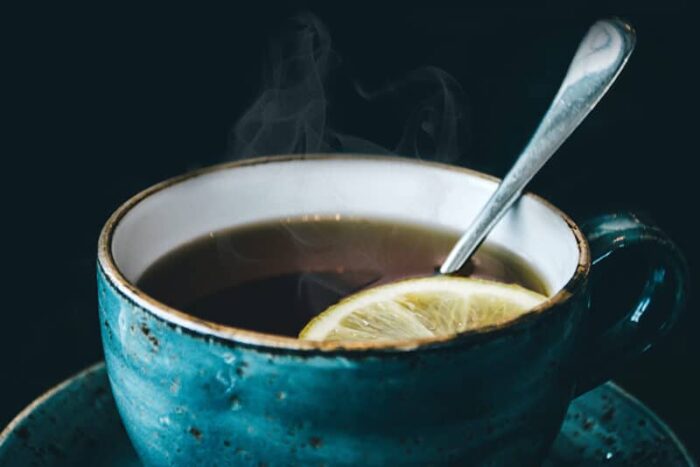Getting a good night’s sleep is one of the best ways to increase your energy and mental focus.
When you’re asleep, your body builds tissues and recovers from stress. At the same time, your brain creates new neural pathways and consolidates memories.

The problem is that few people manage to get enough shuteye. Recent evidence shows that 30% to 40% of American adults experience symptoms of insomnia each year. Worst yet, about one in five people develop chronic insomnia.
If you’re wondering how to sleep better and avoid sleep deprivation, read on. From deep breathing and meditation to warm baths, there are several strategies you can use to get better rest.
Today we’ll show you what works, what doesn’t work, and how to build a better bedtime routine.
How to Sleep Better Naturally
For many of us, sleep became the ultimate luxury. We work late, wake up early, and go online at bedtime to wind down.
Considering these aspects, it’s not surprising that 62% of adults don’t get proper rest. Note that sleeping pills should be your last resort.
First of all, they only work in the short term. Second, they may cause addiction and adverse reactions, such as dizziness, headaches, dry mouth, drowsiness, heartburn, and brain fog. Eight out of 10 people experience a hangover effect after using them, reports the Cleveland Clinic.
Luckily, it’s possible to get better sleep naturally. Simple things, such as eating a light dinner and drinking valerian tea at bedtime, can make a world of difference. Your sleep environment, including your mattress, pillows, and room temperature, matters too.
Below we’ll share some tried-and-tested strategies for a more restful, restorative sleep. Make these changes gradually, see how your body reacts, and then decide on the next steps.
#1. Get More Light During the Day
Sleep and light exposure are strongly connected. Exposure to light at bedtime affects melatonin production, making it harder to fall asleep. Melatonin is a hormone that regulates your circadian rhythm, or sleep-wake cycle.
Daytime light exposure, on the other hand, can lead to better rest at night.

In one study, researchers investigated its effects on a group of people with chronic sleep problems. Subjects exposed to bright light during the day had a more restful sleep and woke up one hour earlier than usual.
Another study reports similar results. Just two hours of bright light exposure per day improved sleep efficiency by 13% in nursing home patients with sleep problems. The effects occurred in as little as two weeks.
Ideally, try to wake up earlier and enjoy the morning sun. Have your coffee outside or take a short walk. If you work from home, move your desk next to the window.
#2. Exercise for Better Sleep
Regular exercise, whether it’s cardio, strength training, or yoga, can improve your sleep and reduce stress.

Health experts recommend working out at least one or two hours before bedtime so your brain and body have enough time to wind down. If possible, try to exercise five days a week or more often.
Walking, stretching, Pilates, house cleaning, and gardening count as exercise, too.
#3. Drink a Cup of Valerian Tea
Valerian has long been used as a natural sleep aid. This plant may reduce the time it takes to fall asleep and help you get better rest.
The Mayo Clinic warns that valerian supplements may not be safe. Some contain too much or too little of the active ingredient, while others have misleading labels. A safer option is to drink valerian tea.

If you find its flavor too strong, mix the tea with milk, honey, or other herbs. The longer you brew it, the more intense the taste, notes Verywell Fit. Steep the leaves for two to five minutes, depending on how strong you want your tea to be.
However, you may want to choose a different type of tea if you take antidepressants, muscle relaxants, or sedatives. Valerian can interact with these medications and cause drowsiness. The same goes for chamomile tea, magnolia tea, passionflower tea, and other bedtime teas.
An alternative is tart cherry juice. This refreshing beverage increases tryptophan availability in the body, which may lead to better rest.
Tryptophan, a naturally occurring amino acid, can reduce the time needed to fall asleep.
These natural sleep aids are generally safe for healthy individuals. However, they may cause drug interactions. Stay on the safe side and consult your doctor before using them.
#4. Drink A Cup of Warm Milk
Remember when your grandmother told you to drink a cup of warm milk before bedtime to enjoy a better night’s sleep? Well, she was right.
Milk is rich in tryptophan and melatonin, says Healthline. Both compounds can reduce sleep latency, or the time needed to fall asleep, and improve sleep quality.

As the researchers note, drinking warm milk at bedtime can also evoke childhood memories and help you relax.
Currently, there isn’t enough evidence to support these claims, but it doesn’t hurt to give it a try. Rich in protein and other key nutrients, milk promotes good health and has none of the side effects of sleeping pills.
#5. Take a Warm Bath
Most people shower in the morning and after work. As it turns out, it may be worth waiting until bedtime to have a warm bath or shower.
This bedtime habit may help you fall asleep faster and lead to a better night’s rest. Ideally, do it one or two hours before hitting the sack.

But why use warm water? The explanation is simple.
Warm water increases your core temperature, so your body has to lower its temperature back to normal afterward. This process can reduce the time it takes to fall asleep. Plus, taking a warm bath is the perfect way to relax before heading to bed.
#6. Use a Supportive Mattress
Your mattress has a direct impact on your sleep, energy levels, and overall health. Medium-firm memory foam mattresses, for example, may reduce neck and back pain, as well as sleep latency, reports a 2015 study published in Sleep Science.
Snoozing on an old mattress can lead to body aches, allergic reactions, and poor sleep.

Likewise, an uncomfortable mattress may cause back pain and muscle soreness. In the long run, it could throw your spine out of alignment and affect your posture.
A high-quality mattress is an investment in your health. See our guide on how to choose one that meets your needs without breaking the wallet.
#7. Follow the 25-Minute Rule
Unfortunately, not even the best mattress can guarantee restful sleep. A tight schedule, daily worries, racing thoughts, and other factors can keep you from getting proper rest. But this doesn’t mean you should spend the night counting sheep.

Johns Hopkins Medicine recommends getting up and going to another room if you’re still awake 20 minutes after hitting the sheets. Read a book or listen to soothing music to calm your mind.
What matters most is to relax. Do whatever makes you feel good, whether it’s meditation or even cooking. For example, you could try to make breakfast for the next day. Go back to bed when you start to feel sleepy.
#8. Meditate for a Few Minutes
Speaking of meditation, did you know that it can improve sleep quality and reduce insomnia? Mindfulness meditation is particularly beneficial, notes Harvard Medical School.
In one study, people who used this relaxation method once a week experienced a greater reduction in fatigue, insomnia, and depression symptoms than those enrolled in a sleep education program. These beneficial effects occurred in just six weeks.

Scientists say that mindfulness meditation elicits a relaxation response, which may help reduce the effects of stress on your mind and body. You, too, can try this strategy to unwind before sleep.
Simply follow these steps:
- Sit in a quiet place and choose a calming focus, such as a mantra or your breath.
- Take deep breaths while repeating your chosen word or phrase.
- If you have racing thoughts, take a deep breath and focus on your mantra.
- Empty your mind and go with the flow.
The experts at Harvard Medical School suggest practicing for about 20 minutes at a time. Do it during the day until you get used to it.
With regular practice, you’ll be able to use this method whenever you need to shut off your brain and relax.
#9. Try Progressive Muscle Relaxation
Stress and anxiety can make it difficult to fall and stay asleep. Chronic insomnia, on the other hand, may increase the risk of anxiety. Simply put, you may not be able to sleep due to anxiety, but skimping on shuteye only makes things worse.

One way to deal with these issues is to use relaxation techniques. Meditation can make all the difference, but you may also try progressive muscle relaxation.
This method not only decreases anxiety but also relieves muscle tension. Over time, it may improve your sleep and mental wellbeing.
Ready to give it a try? Start by following these instructions:
- Lie in your bed or on a yoga mat. Keep your hands by your sides.
- Slow down your breathing to relax.
- Gradually tense each muscle group for about five seconds and then relax it for 10 seconds.
- Start your right arm, followed by the left arm, forehead, eyes and cheeks, neck, shoulders, back, chest, and stomach. Do the same with your hips, buttocks, legs, and feet.
- When you’re done, continue to breathe slowly and enjoy the feeling of relaxation.
The Centre for Clinical Interventions in Australia offers step-by-step instructions on how to tense and relax each muscle group, so you might want to check them out. The more you practice, the easier it gets.
#10. Experiment with Aromatherapy
Essential oils contain volatile compounds and phytochemicals that may benefit your health. Depending on their composition, they can ward off depression, energize your senses, stimulate appetite, or relieve nausea.
Lavender essential oil, for example, may improve sleep and decrease anxiety. Cedarwood oil has similar effects. Other essential oils, such as lemon, peppermint, or tea tree oil, may reduce anxiety, relieve headaches, or boost your mood, reports Johns Hopkins Medicine.

In a clinical trial, people diagnosed with cancer experienced better sleep after using aroma sticks infused with sandalwood, lavender, bergamot, frankincense, or mandarin oil.
Some people use these products topically. Others add a few drops to a diffuser or choose to wear necklaces, bracelets, and other accessories infused with essential oils.
If you prefer to apply the oil on your wrist or other body areas, remember to dilute it in a carrier oil first.
For example, you may dilute lavender essential oil with olive, coconut, or avocado oil. Test it on a small area of your skin and wait about 24 hours to see if you experience any allergic reactions, such as hives or rashes.
#11. Write Down Your Thoughts
Psychologists recommend starting a journal for good reason. When you write down your problems, it’s easier to clear your mind and find solutions.
What you may not know is that this strategy can also lead to better sleep.

A 2010 study published in Behavioral Sleep Medicine found that journaling may reduce pre-sleep cognitive arousal. To put it simply, this technique can make it easier to relax at bedtime, which in turn may improve your sleep.
All you need to do is to write down whatever is on your mind. This way, you may find it easier to organize your thoughts and stop ruminating at night.
#12. Use Supplements Wisely
About 77% of Americans take dietary supplements. You may think that B vitamins, ginseng, turmeric, and other supplements are harmless, but that’s not necessarily true.

First of all, just because something is natural doesn’t mean it’s safe. Second, there are quite a few supplements that can affect your sleep due to their stimulating effects. Let’s see a few examples:
- Caffeine pills
- Guarana
- Ginseng
- Cold medicines
- Vitamin D
Vitamin D, for instance, may interfere with your sleep when used in large doses. Guarana is high in caffeine and may keep you from falling asleep. Ginseng has stimulating effects, too.
Cold medicines are not better either. Many brands contain sugar and pseudoephedrine, a decongestant that may cause restlessness and sleep problems. Sugar, on the other hand, causes blood glucose spikes and may keep you awake at night.
Better Sleep, Better Health
A good night’s sleep does more than just energize your mind and body. It also boosts your immune system, lifts your mood, and improves memory. In the long, it may lower your risk of heart disease, obesity, and other chronic illnesses.
Now that you know how to get better sleep, create a bedtime routine and stick to it.
Take the above steps to declutter your mind and prepare your body for rest.

We haven’t mentioned anything about blue light, napping, fatty foods, and other common sleep disruptors, but you can read more about them in our guide on how to sleep faster.
So, try these strategies and let us know how it goes! Our advice is to make one change at a time. Use a sleep tracker or start a sleep diary to get a better idea of your sleep habits.



